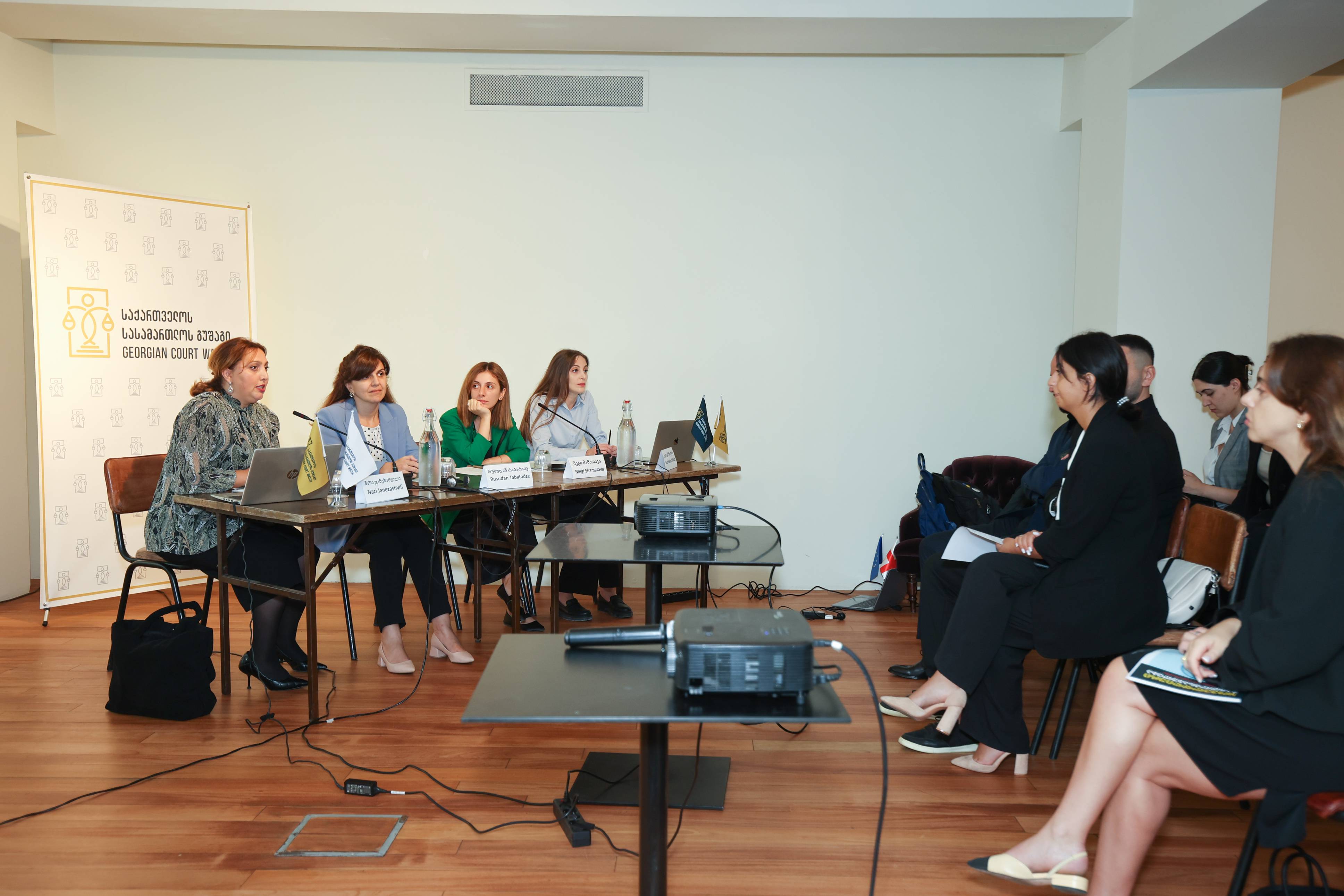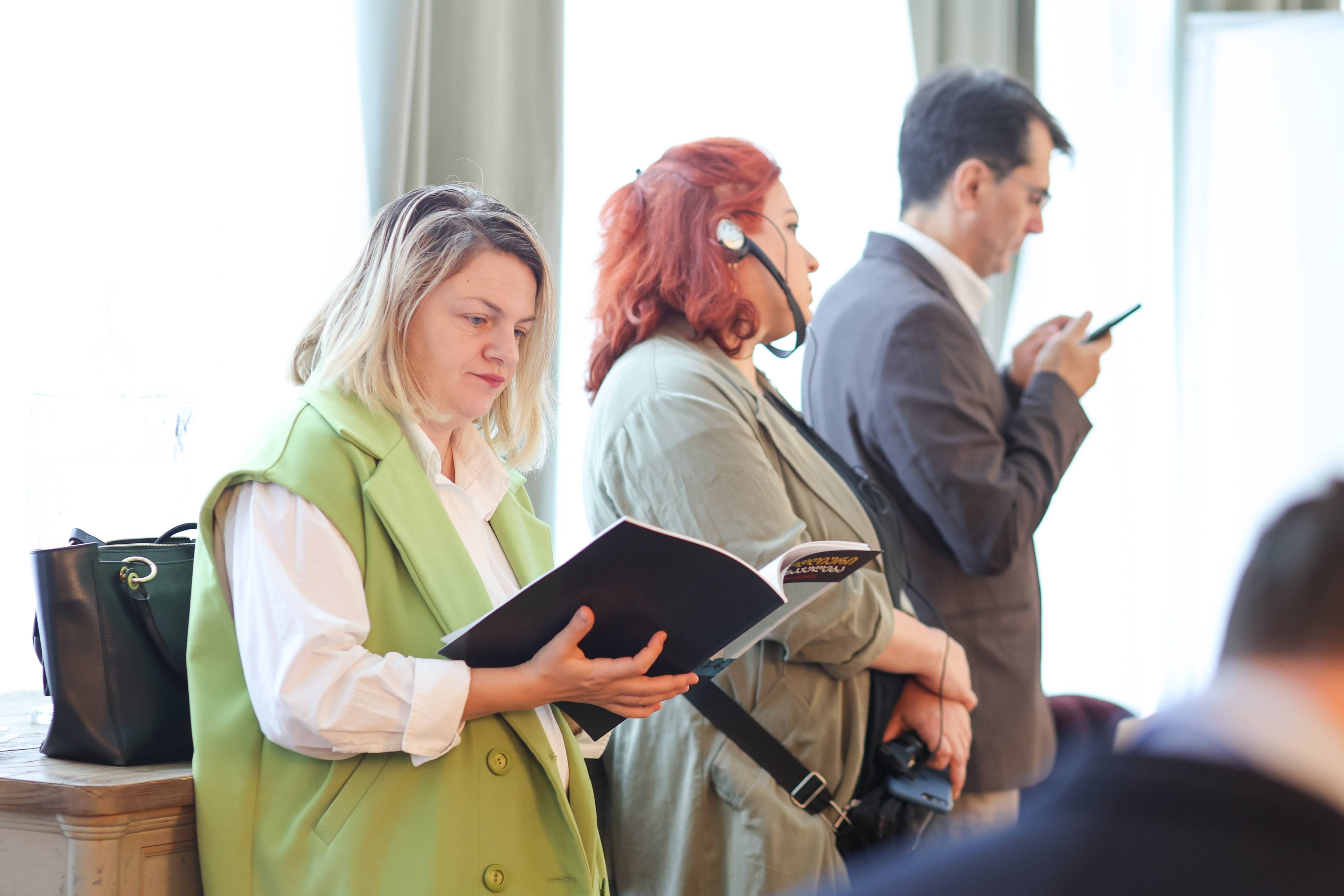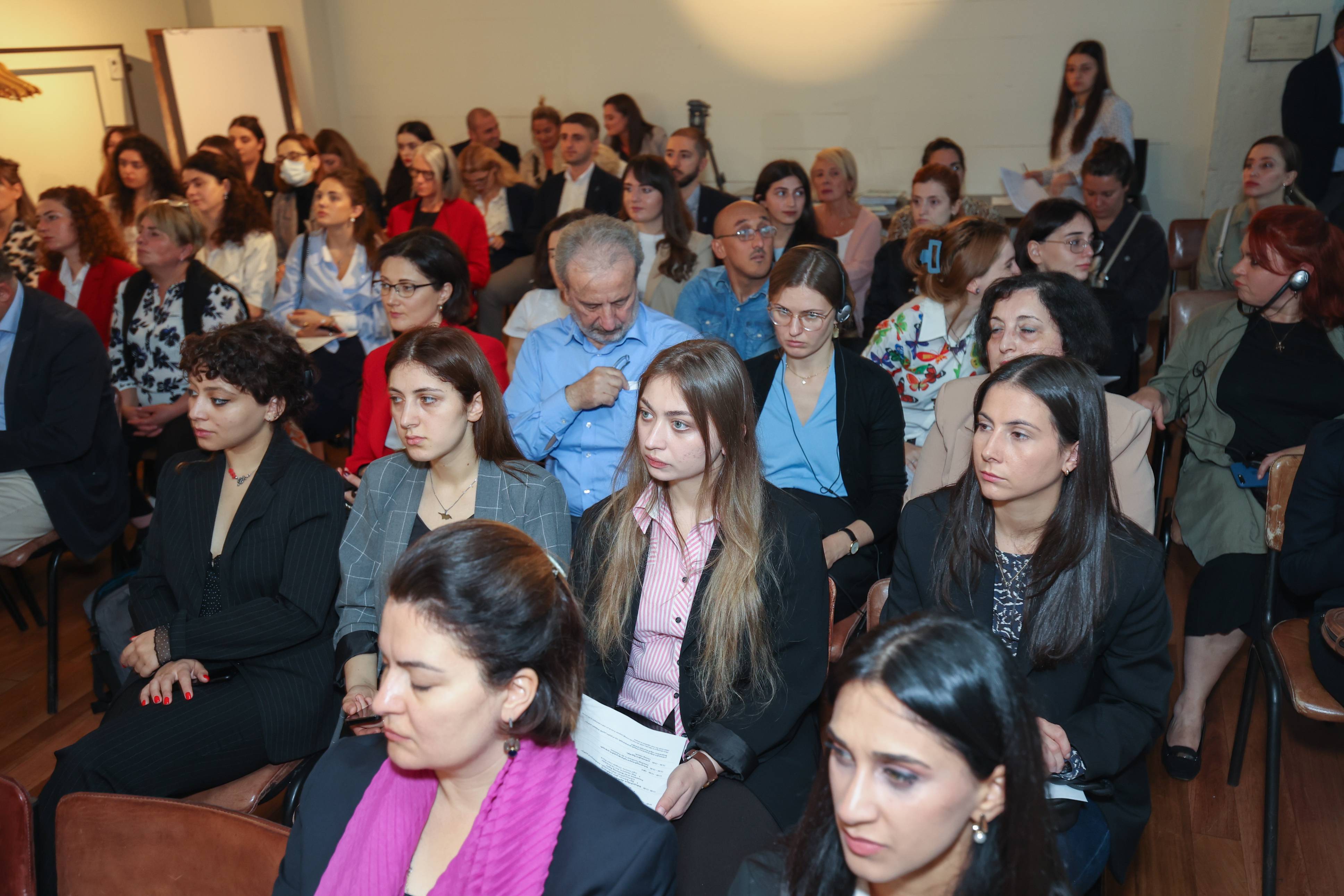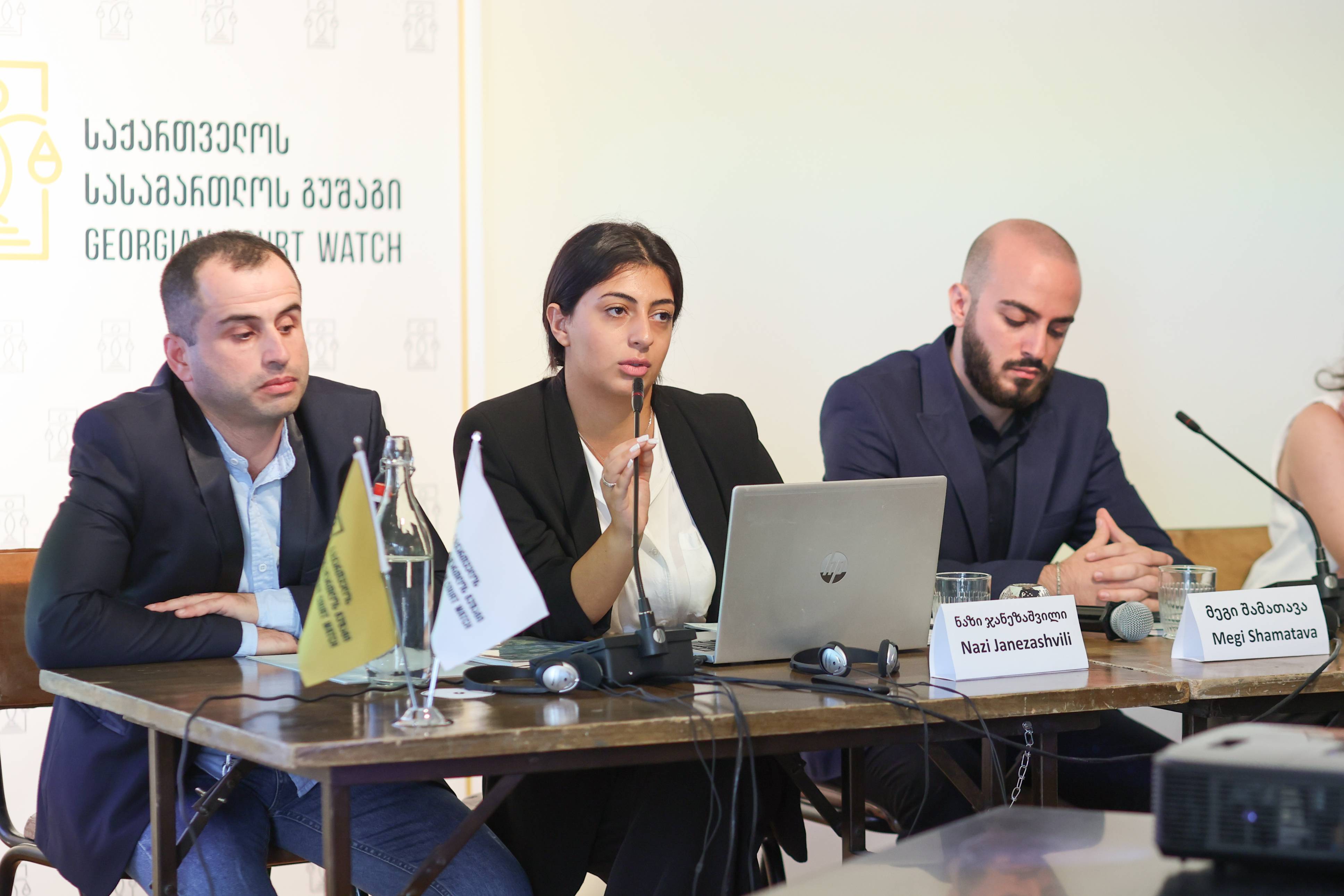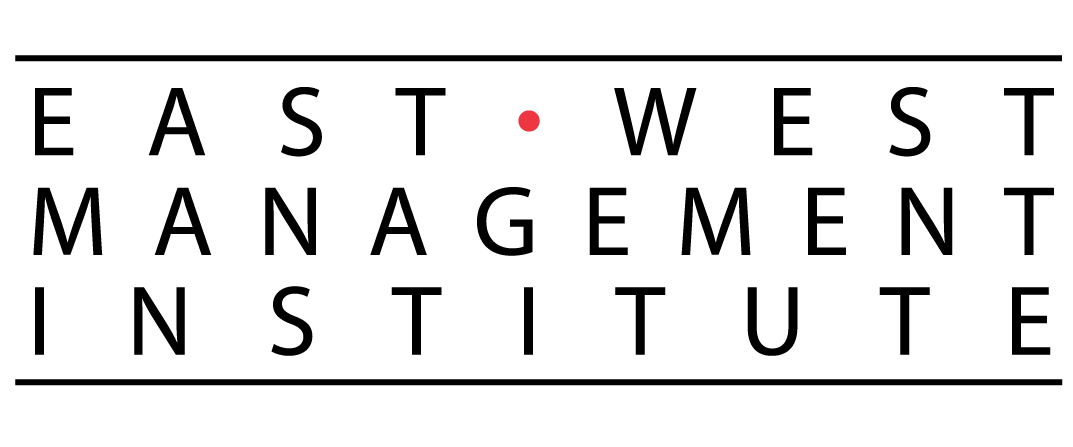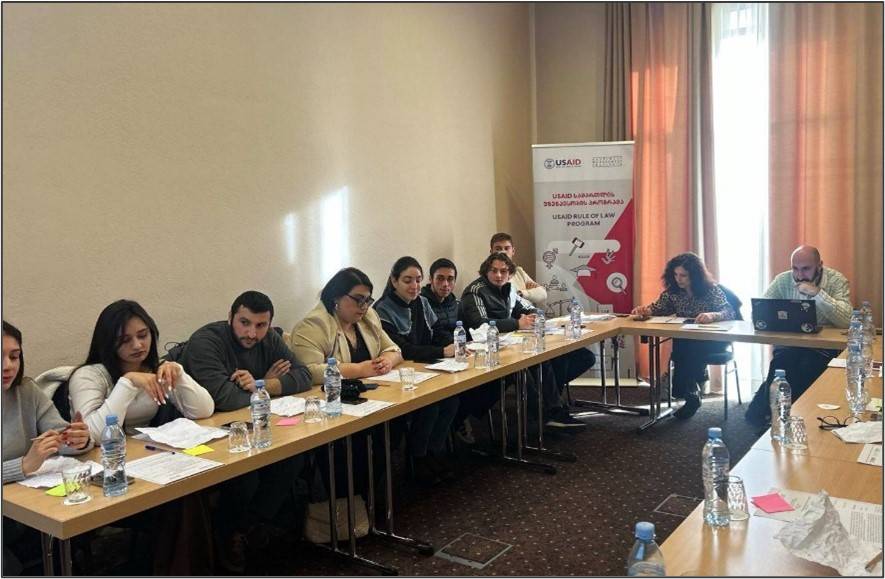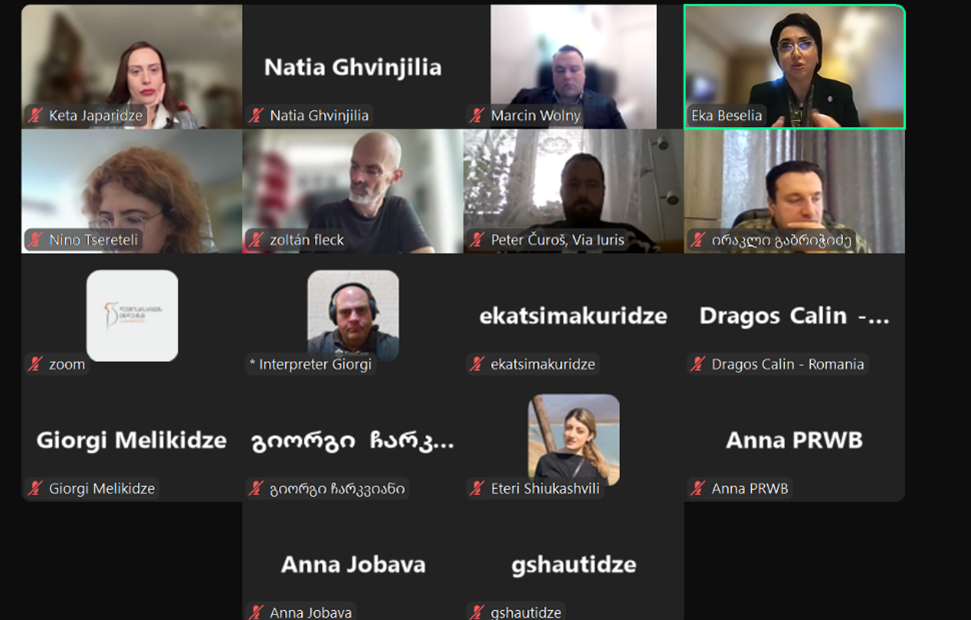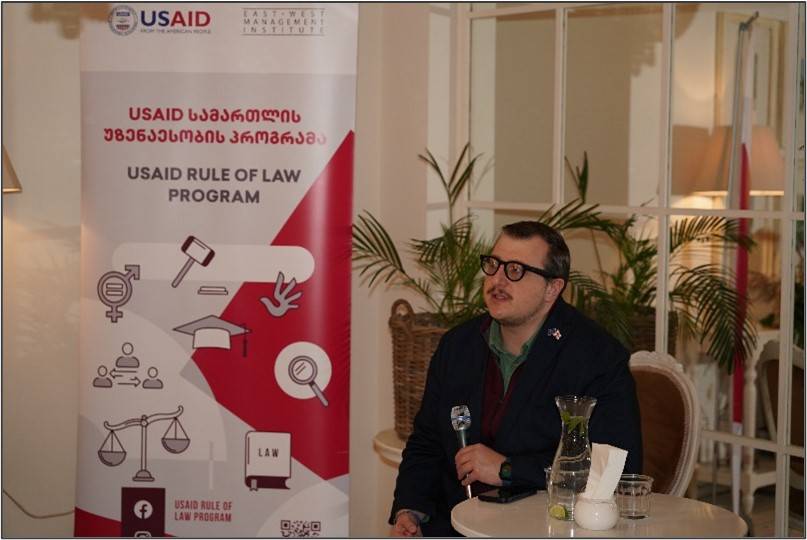Everyday Justice in the Regions of Georgia - Presentation of Monitoring Report
Public participation in the judiciary is essential for promoting transparency, accountability, and legitimacy. It empowers citizens to hold judges accountable, instills trust in the legal system, and guarantees the inclusion of diverse perspectives.
To enhance public participation in the monitoring of court processes, Georgia Court Watch, with support from the USAID Rule of Law Program, enlisted the efforts of 76 volunteer court monitors across Georgia. Over a period of 10 months, these volunteers attended 1,341 court proceedings and meticulously documented their observations in a comprehensive report.
On September 27, Georgia Court Watch, with support from the USAID Rule of Law Program, unveiled the findings of its court monitoring and released its report.
"The report encompass both the court's administrative operations and procedural justice, which directly impact transparency and accountability. Among the issues highlighted were: delayed commencement of court sessions, session postponements due to technical glitches or organizational matters, less-than-optimal clarity in court processes, and verdicts/decisions that were not easily comprehensible to citizens," said Nazi Janezashvili, Director of Georgia's Court Watch.
Rusudan Tabatadze, the Rule of Law Project Management Specialist, Democracy, Rights and Governance Office USAID/Caucasus said: "The primary objective of every public institution, including the court, should be to serve and protect the rights of its citizens. Through the USAID Rule of Law Program in Georgia, we are dedicated to promoting people-centered justice and providing support for court actions that prioritize the needs of the people. The active involvement of ordinary citizens - presented here today - in monitoring court proceedings is not a common practice in Georgia. It is heartening to see young people who actively participated in monitoring court proceedings and shared their observations with us and the general public."
The organization's legal analyst, Megi Shamatava, presented the findings of the volunteers' observations to the participants and highlighted that "most judges attentively listened to the parties and explained legal jargon in language accessible to all parties involved." Nevertheless, there were instances where judges were inadequately informed and unprepared for a case. Although judges generally adhered to ethical norms and engaged constructively with courtroom attendees, there were isolated occurrences of judges displaying rudeness or adopting an aggressive stance towards the parties.
Keti Gachechiladze, a legal analyst with Georgia Court Watch, noted, "Volunteers identified the extended duration of court hearings and the jurisdiction surrounding sentencing as significant issues."
Over 80 interested individuals attended the report presentation, including judges, lawyers, politicians, representatives of international organizations, members of civil society, and the media. The event concluded with the recognition of volunteers who actively contributed to the monitoring of court proceedings, with certificates awarded in appreciation of their efforts.
